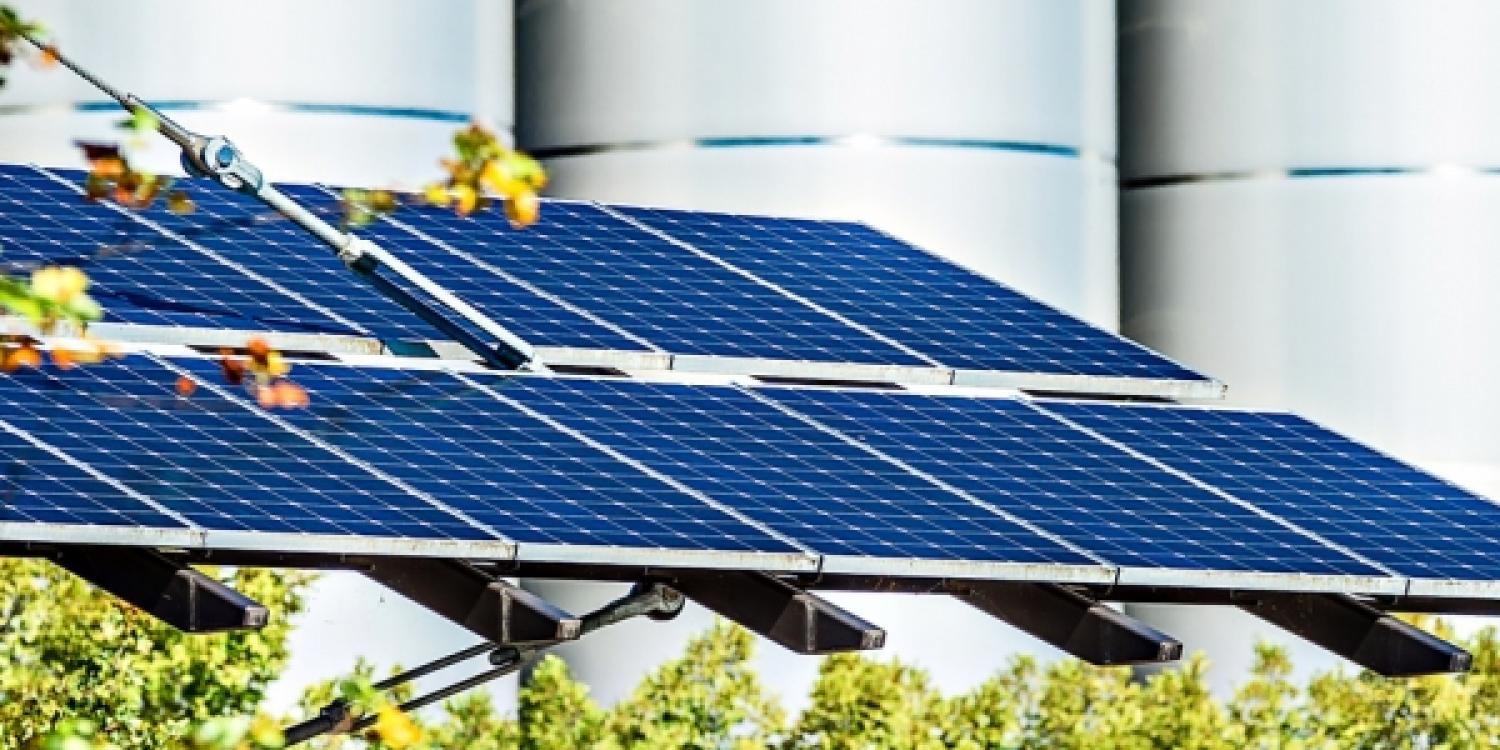Solar heat in breweries

Information
Spotting the solar trend
- German brewery seemlessly integrates solar into its energy mix
- 155 m2 solar thermal system produces 400 MWh a year
To help offset growing energy costs and improve its environmental credentials, Hutt Brewery in Kassel, Germany integrated a solar heat system for the brewing process which began operation in May 2010. The solar thermal system consists of 155 m2 flat-plate collectors which generate part of the thermal energy required for supplying hot water to a maximum of 90° C.
The energy transfer medium is a mixture of water and glycol, and the water is heated via an external plate heat exchanger. The temperature range solar loop is up to 95° C and the temperature range process from 40 to 90°C. The energy is transferred to a 10 m³ buffer storage tank. Annual useful solar heat delivery is 400 MWh a year.
The solar-heated brewing water is then fed into the draw-down tank when its fill level drops below a certain level. However, it can only be filled to 80 % of its capacity because this storage tank is also filled with hot water produced using heat recovered during the wort cooling process. Corresponding volumes are kept free during the production times from Sunday evening to Friday noon. The draw-down tank releases hot water to the displacement tank and also supplies the mashing process, which only requires relatively low temperatures of just under 60° C. The conventional heat source is a steam boiler.
Key benefits
Hutt anticipated a trend towards more sustainable brewing practices back in 2010. Data from the company indicates its investment of around € 95 500 in a 155 m2 solar thermal system and 10 m3 buffer storage tank, which amounts to around € 600 per m2 of collector surface area, has paid off.
Integrating renewable energy in the manufacturing processes, Best Environmental Management Practice for the Food and Beverage Manufacturing Sector
Green Foods, Hütt-Brewery case study http://www.green-foods.eu/wp-content/uploads/2014/07/BPE_H%C3%85tt_Brew…
SHIP Plants, Hütt-Brewery solar installation data, http://ship-plants.info/solar-thermal-plants/115-hutt-brewery-germany